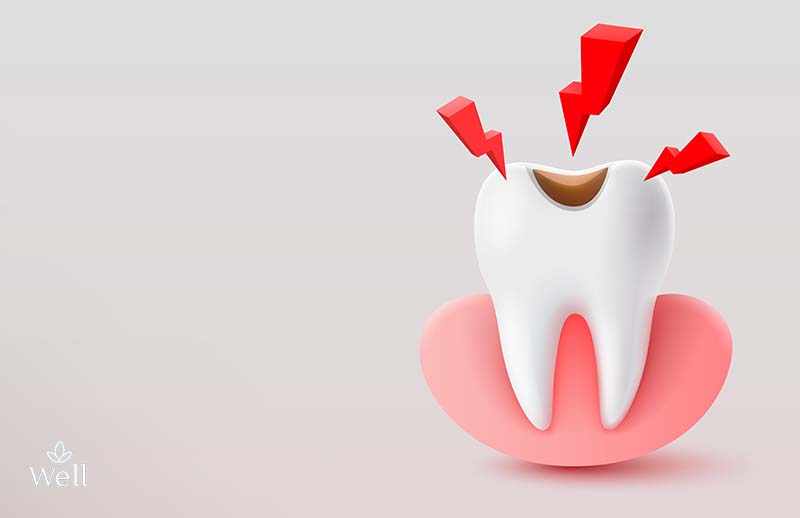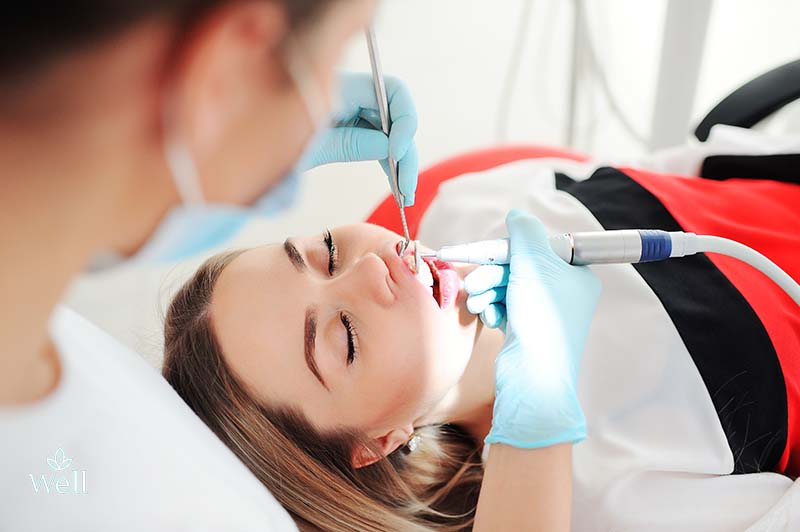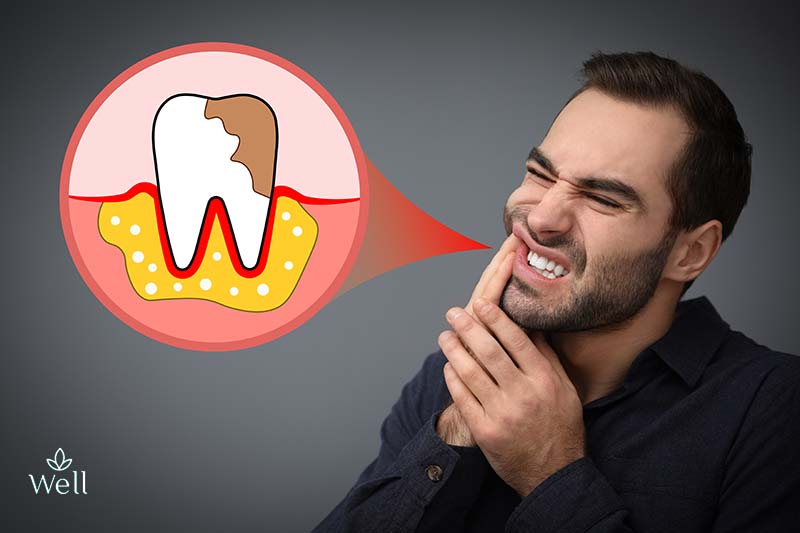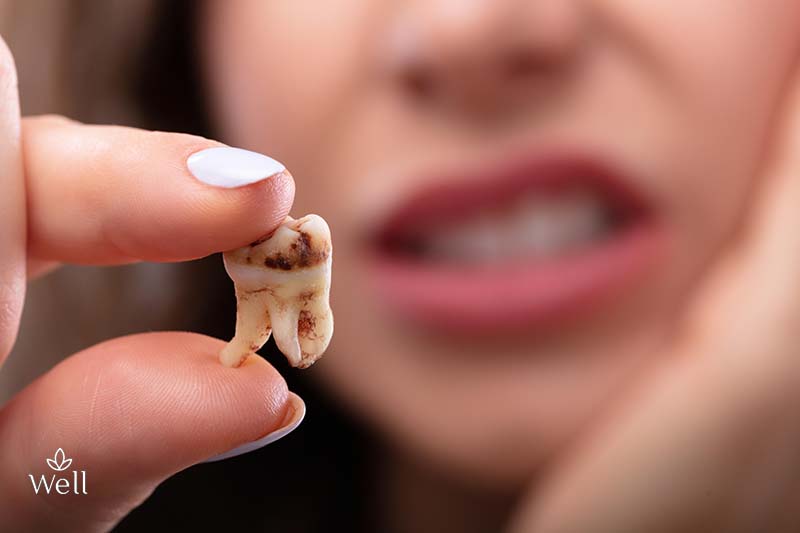As we age, our bodies undergo numerous changes, and dental health is no exception. Cavities, or dental caries, can affect older adults differently than younger individuals due to various factors, including decreased saliva production and the potential for other health conditions. Understanding how cavities are treated in older adults is crucial for maintaining oral health and overall well-being. This article delves into the various treatments available for cavities, emphasizing their significance for individuals over 45 years old living in the USA.

The Importance of Dental Hygiene for Older Adults
Maintaining oral hygiene is paramount for older adults. Poor dental hygiene can lead to more serious health issues, not just in the mouth but throughout the body. Regular brushing and flossing, combined with routine dental check-ups, can significantly reduce the risk of developing cavities. However, when cavities do occur, knowing how they are treated is essential.
Common Causes of Cavities in Older Adults
Several factors contribute to the formation of cavities in older adults:
- Decreased Saliva Production: Saliva helps wash away food particles and neutralize acids in the mouth. Older adults may experience dry mouth due to medications or age-related changes, increasing the cavity risk.
- Gum Recession: As gums recede, the tooth roots become exposed, making them more susceptible to decay.
- Dietary Changes: An increase in sugary foods or beverages can lead to a higher cavity risk.
- Underlying Health Issues: Conditions like diabetes can complicate oral health, influencing cavity formation and treatment.
Recognizing Cavities in Older Adults
Early detection of cavities can prevent severe dental issues. Common signs of cavities include:
- Tooth Sensitivity: Pain or discomfort when consuming hot, cold, or sweet foods and drinks.
- Visible Holes or Pits: Cavities often appear as dark spots or holes in the teeth.
- Pain: Dull or sharp tooth pain, especially while chewing.
Treatment Options for Cavities in Older Adults
When cavities are diagnosed, various treatment options are available. The treatment approach may depend on the severity of the cavity and the overall dental health of the individual:

1. Non-Invasive Treatments
Early-stage cavities can often be treated without invasive procedures:
- Fluoride Treatments: Professional fluoride applications can remineralize the enamel and halt the progression of early cavities.
- Dental Sealants: A sealant can be applied to the chewing surfaces of back teeth to protect against decay.
2. Fillings
For cavities that have progressed beyond the early stage, fillings are the most common treatment:
- Materials Used: Fillings can be made from various materials, including composite resin, amalgam, gold, or porcelain. The choice of material often depends on the location of the cavity and patient preference.
- The Process: The dentist will remove the decayed portion of the tooth and fill the area with the chosen material, restoring the tooth’s function and appearance.
3. Crowns
In cases where a cavity is extensive, a crown may be necessary:
- Indications for Crowns: Extensive decay or damage that compromises the tooth structure may necessitate a crown to protect and stabilize the tooth.
- Procedure: After preparing the tooth, the dentist will place a custom crown over it, ensuring it blends with the surrounding teeth.
4. Root Canals
Sometimes cavities lead to infection that reaches the tooth’s pulp:
- When is a Root Canal Needed? If the decay has reached the inner pulp of the tooth, a root canal may be required to remove the infected tissue and relieve pain.
- Post-Procedure Care: Following a root canal, the tooth often requires a crown for protection.
Preventive Measures for Older Adults
To minimize the risk of cavities, proactive measures should be taken:

- Regular Dental Visits: Routine check-ups allow for early detection and treatments.
- Daily Oral Care: Brushing twice daily with fluoride toothpaste and daily flossing are crucial habits to develop.
- Hydration: Staying hydrated can help combat dry mouth, particularly for those on medications that cause xerostomia.
Nutrition and Its Role in Dental Health
A balanced diet is essential for maintaining oral health:
- Limit Sugary Foods: Reducing sugar intake can significantly lower cavity risk.
- Incorporate Calcium and Vitamin D: These nutrients support strong teeth and bones.
- Stay Hydrated: Drinking plenty of water aids in saliva production and helps rinse away food particles.
Understanding the Role of Medications
Many older adults take medications that can affect oral health:
- Dry Mouth Medications: Some medications can cause dry mouth, leading to an increased risk of cavities.
- Discussing Medications with Your Dentist: Informing your dentist about any medications can help them tailor your dental care appropriately.
Innovative Treatments and Technologies
The dental field continually evolves, offering new methods for treating cavities:
- Laser Treatments: Some dentists use lasers to remove decay with minimal discomfort.
- Oral Health Technology: Advanced technology and treatment plans focus on preventive approaches and early intervention.
Engaging in Community Resources
Older adults can benefit from various community resources aimed at promoting dental health:

- Local Dental Clinics: Many communities offer affordable dental services or sliding scale fees based on income.
- Education and Awareness Programs: Community programs can educate older adults about the importance of dental health.
Conclusion
Addressing dental cavities in older adults is an essential aspect of maintaining overall health and quality of life. By understanding the treatment options available and the importance of preventive measures, older adults in the USA can take proactive steps towards preserving their dental health.
The journey to optimal oral health requires collaboration with dental professionals and a commitment to personal care, ensuring that cavities do not undermine the quality of one’s golden years.
Benefits
As dental health is crucial for everyone, older adults often face unique challenges regarding cavities and their treatment. Understanding how cavities are treated in this age group is vital for maintaining oral health. Here are five key benefits of effective cavity treatment in older adults.
1. Improved Quality of Life
Treating cavities can significantly enhance the overall quality of life for older adults. When cavities are left untreated, they can lead to severe pain and discomfort, impacting daily activities such as eating, speaking, and socializing. Effective treatment options, such as fillings or crowns, allow individuals to regain their ability to enjoy their favorite foods and engage more freely in social settings.
Benefits of Restoring Oral Function
- Restoration of chewing ability, making it easier to eat a balanced diet.
- Minimization of embarrassment associated with dental issues, promoting social interaction.
- Enhanced ability to speak clearly, which is essential for effective communication.
2. Prevention of Further Dental Issues
One of the most critical benefits of treating cavities promptly is the prevention of more severe dental problems down the line. Untreated cavities can lead to tooth decay and even tooth loss, which can create more complicated health issues.
How Treatment Prevents Complications
- Early intervention can halt decay progression, reducing the need for more invasive treatments.
- Maintaining natural teeth helps avoid reliance on dentures or implants, which can be more challenging for older adults.
- Preventing systemic health issues linked to oral health, such as heart disease and diabetes.
3. Enhanced Dental Aesthetics
Cavity treatment can significantly improve the aesthetics of a person’s smile, which often becomes a concern for older adults. A healthy smile boosts confidence and self-esteem and impacts how others perceive them.
Aesthetic Treatments Available
- Composite fillings can match the natural color of teeth, providing a seamless appearance.
- Teeth whitening and bonding treatments can rejuvenate an older adult’s smile.
- Veneers and crowns can improve both function and appearance, particularly in cases of extensive decay.
4. Better Overall Health Outcomes
Oral health is intricately linked to overall health. Treating cavities eliminates infection and reduces the risk of bacteria entering the bloodstream, which can lead to systemic health issues.
Connection Between Oral Health and Systemic Health
- Good oral health helps prevent conditions such as pneumonia, heart disease, and diabetes complications.
- Managing oral infections contributes to better management of chronic diseases prevalent in older adults.
- Effective cavity treatment promotes better nutrition and digestion, as older adults may avoid certain foods due to dental pain.
5. Personal Empowerment and Responsibility
Cavity treatment fosters a sense of personal responsibility towards one’s health. When older adults actively engage in their oral care, they are more likely to maintain regular dental visits and practice good oral hygiene.
Encouraging Active Participation in Health Care
- Informed patients can make better choices regarding their treatment options and care plans.
- Promoting self-care practices leads to improved health literacy among older adults.
- Positive dental experiences encourage continuous care and preventive measures, extending beyond just filling cavities.
Related Links
FAQ – Questions and Answers
What causes cavities in older adults?
Cavities in older adults are often caused by dry mouth, gum recession, dietary changes, and underlying health issues such as diabetes.
Why is saliva important for preventing cavities?
Saliva helps wash away food particles and neutralize acids, reducing the risk of cavity formation in older adults.
How does gum recession lead to cavities?
Gum recession exposes the roots of teeth, which are more vulnerable to decay due to lack of enamel protection.
Can medications increase cavity risk in seniors?
Yes, many medications cause dry mouth, reducing saliva flow and increasing the risk of tooth decay.
What are early signs of cavities in older adults?
Signs include tooth sensitivity, visible holes or pits, and pain while chewing or consuming hot, cold, or sweet foods.
How are early-stage cavities treated?
Early cavities can be treated with fluoride treatments and dental sealants to remineralize enamel and protect teeth.
What are dental sealants and how do they help?
Dental sealants are protective coatings applied to the chewing surfaces of molars to prevent decay in hard-to-reach areas.
What materials are used for dental fillings?
Common filling materials include composite resin, amalgam, gold, and porcelain, each with specific benefits.
When is a crown needed instead of a filling?
A crown is needed when the decay is extensive and has compromised the tooth’s structure beyond what a filling can repair.
What does the crown placement process involve?
The tooth is shaped, impressions are taken, and a custom crown is placed to restore function and appearance.
When is a root canal necessary?
A root canal is required when decay reaches the tooth’s pulp, causing infection and severe pain.
What happens during a root canal?
The infected pulp is removed, the canals are cleaned and sealed, and the tooth is usually restored with a crown.
How can older adults prevent cavities?
Prevention includes daily brushing, flossing, hydration, regular dental check-ups, and a balanced diet low in sugar.
Why are regular dental visits important for seniors?
Regular visits allow for early detection of cavities and monitoring of other age-related oral health issues.
Can diet affect cavity development in older adults?
Yes, a diet high in sugar increases cavity risk, while calcium and vitamin D support tooth strength.
How does hydration help prevent cavities?
Staying hydrated boosts saliva production, which is essential for rinsing bacteria and acids from the mouth.
Do health conditions like diabetes impact dental health?
Yes, diabetes can affect circulation and immune response, increasing the risk of cavities and gum disease.
Are laser treatments available for cavities?
Yes, some dentists offer laser cavity treatment, which can remove decay with less discomfort and precision.
Is fluoride still necessary after age 45?
Absolutely, fluoride strengthens enamel and helps prevent decay, especially in adults with receding gums.
What are the benefits of early cavity treatment?
Early treatment prevents pain, saves tooth structure, and reduces the need for more invasive procedures.
Can untreated cavities affect overall health?
Yes, untreated cavities can lead to infections that may spread and contribute to systemic health issues.
What are the aesthetic benefits of cavity treatment?
Treatments like composite fillings and crowns restore a natural appearance and improve smile confidence.
Do community clinics offer affordable dental care for seniors?
Yes, many local clinics provide reduced-fee or sliding-scale services specifically for older adults.
How can older adults with dexterity issues maintain oral care?
Using electric toothbrushes and floss holders can help manage brushing and flossing more easily.
What role does vitamin D play in oral health?
Vitamin D helps the body absorb calcium, which is vital for maintaining strong teeth and preventing decay.
Can dentures protect against cavities?
Dentures replace missing teeth but don’t prevent decay on remaining teeth, so oral care remains essential.
How does aging affect tooth enamel?
Enamel can wear down with age, increasing sensitivity and susceptibility to decay.
Should I discuss my medications with my dentist?
Yes, some medications affect saliva flow or oral tissues, so informing your dentist ensures proper care.
Is there a link between oral and heart health?
Yes, poor oral health can contribute to cardiovascular problems due to the spread of bacteria and inflammation.
How does cavity treatment empower older adults?
Proper treatment restores comfort and function, boosts confidence, and encourages better self-care habits.
Interesting Links
Social Media
Instagram: https://www.instagram.com/newofficialwellness/
Facebook: https://www.facebook.com/people/Well-Health-Guide
Youtube: https://www.youtube.com/officialwellness

